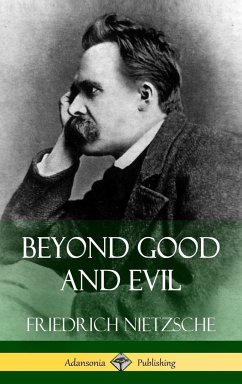Beyond Good and Evil: Prelude to a Philosophy of the Future is a seminal work of moral philosophy by Friedrich Nietzsche, presented here in hardcover form. First published in 1886, it expands on the ideas put forth by an earlier work, Thus Spoke Zarathustra. The tone this text carries is more critical, polemical and argumentative, its words representing the fierce maturing of Nietzsche's ideas. In Beyond Good and Evil, Nietzsche boldly claims that earlier philosophers are lacking in good critical sense, basing their ideas upon a wide, uncontested acceptance of the dogmatic principles of ordinary morals, virtues and vices. The first claim Nietzsche makes is that his forebears and contemporaries have founded grand metaphysical systems upon the faith that good people are the opposite of evil people. This, as opposed to both poles of duality being a different expression of the same impulses more directly and plainly expressed by the evil man.
Hinweis: Dieser Artikel kann nur an eine deutsche Lieferadresse ausgeliefert werden.
Hinweis: Dieser Artikel kann nur an eine deutsche Lieferadresse ausgeliefert werden.









